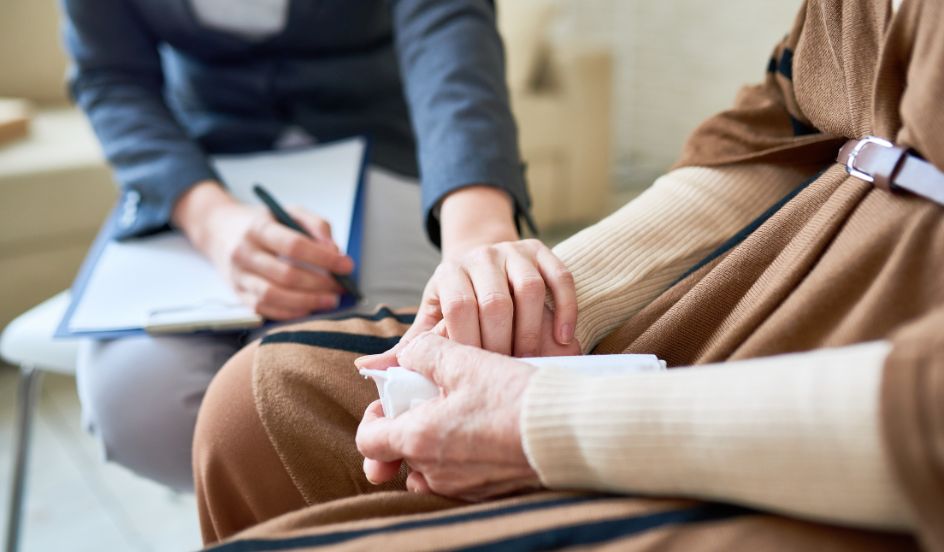What’s Your Opinion?
January 1st, 2016 / By Kathleen Moore CSW Instructor/Faculty Head
Everybody has an opinion, right? We’ve all heard from our family, friends, strangers on the bus, and small talk in the grocery store what people’s opinions are about citizens using social services. Terms like “Welfare Bum”, “Crazy Psycho”, and “Crackhead” are commonly used to label people in our society. Unfortunately, those who are using the labels are grossly misinformed. Furthermore, those who are grossly misinformed seem to have the loudest voices! It’s important to see how proper education on social issues can lead to more realistic and optimistic views of our society.

Positive thoughts of our society can be achieved by educating people on social issues and dispelling negative views of people who use social services.
Take mental health for example: When working within the mental health field, one encounters an astonishing amount of hope for humankind. You look around you at the people who have been branded ill, deviant, delinquent and overall, undesirable, and you see the opposite condition – you see people who have different abilities, who have more self awareness than the average person. You see people who have enough insight about their own shortcomings that they are hardly dysfunctional. It is only when one sees the opposite condition that we can realize the grotesque negligence that has taken place.
Our society taught us incorrectly when defining mental illness. The system forgot to include the human aspect when it created the definition. A person with a mental health concern is now able to be reduced to a list of symptoms and a diagnosis. It’s easy to ignore a bunch of words we don’t understand or a label given by a doctor. Informed citizens cannot so easily ignore the person.
Today, our mental health system has moved on from categorizing and labelling into recovery. We are taught throughout our lives that people with mental illness are violent, that they are unpredictable, and worst of all, that they are incurable. Not only does our society encourage us to give up on those who are difficult to understand, it also robs consumers of hope that change is possible. If we continue to write off those we refuse to understand, there will never be hope for change.
Professionals in the mental health field understand that hope is alive and well; we see recovery for various disorders, ranging from depression and bipolar to schizophrenia and personality disturbances. Our system has evolved to include person centered programming for each individual seeking recovery, and has funded a wide array of small projects that are focused on consumer-based, peer recovery.
As Community Service Workers, Social Service Workers and other human service professionals, it is important to understand that our system is evolving, and that what we don’t know will only continue to perpetuate stigma and prejudiced attitudes about consumers of mental health services. We take information from trusted sources around us that may not always be up to date on the organic processes of the therapeutic profession. When you hear there is no hope, please don’t believe it. When you know differently about a person’s worth, please, speak your mind.
As citizens in society it is our responsibility not only to be shaped by the world, but also to shape the world. Knowledge gives us the power to change the views of those around us who have not informed themselves. What we don’t know will harm us, and will ultimately harm those who most need society’s support. Opinions are warranted and valid only when they are informed.
So, we all have an opinion, right? What’s yours?
Kathleen Moore is Social Service Worker graduate of Mohawk College, currently instructing the Community Service Worker Diploma Program at triOS College, Hamilton Campus. She has also obtained a certificate in Concurrent Disorders from Mohawk College, and is a Certified Non-Violent Crisis Intervention Instructor for triOS College. Kathleen’s main expertise is working with people who have mental health concerns and/or cognitive disabilities. She has worked for many years in a mental health drop-in centre that focuses mainly on the recovery model of treatment, and also has experience with The Salvation Army, St. Matthew’s House, The Good Shepherd Centres, and smaller “grass roots” agencies. Kathleen has experience with residential and day program settings, measurable outcome models, program planning, working alongside families of clients, day care centres, senior’s centres, youth programs (mainly suicide prevention), and suicide crisis intervention.
Visit triOS College’s Community Service Worker program page to learn more.
